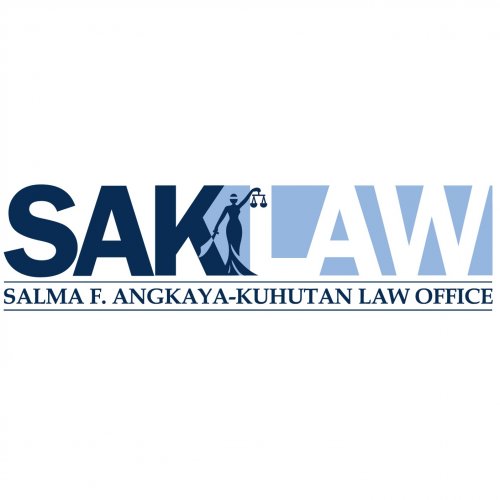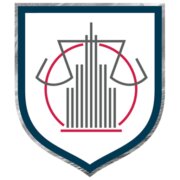Best Fintech Lawyers in Philippines
Share your needs with us, get contacted by law firms.
Free. Takes 2 min.
Or refine your search by selecting a city:
List of the best lawyers in Philippines
About Fintech Law in Philippines
The financial technology (fintech) sector in the Philippines has experienced significant growth over recent years, driven by advances in technology, growing internet penetration, and the need for more inclusive financial services. Fintech encompasses a range of products and services including digital banking, payment systems, cryptocurrencies, and online lending. The Philippine government and regulatory bodies like the Bangko Sentral ng Pilipinas (BSP) have recognized the importance of fintech and are creating regulatory frameworks to encourage innovation while ensuring consumer protection and financial stability.
Why You May Need a Lawyer
Engaging with fintech in the Philippines can be complicated, given its rapid evolution and the complexity of applicable regulations. Here are common situations in which legal advice may become essential:
- Compliance and Licensing: Fintech companies may need assistance in complying with local regulations and obtaining necessary licenses to operate legally.
- Consumer Protection: Ensuring compliance with consumer protection laws can prevent legal disputes and maintain trust with clients.
- Contracts and Agreements: Developing or reviewing contracts related to fintech operations to minimize legal risks and liabilities.
- Dispute Resolution: Handling legal disputes involving fintech products, services, or data breaches.
- Intellectual Property: Navigating intellectual property rights concerning new fintech innovations or technology.
Local Laws Overview
The fintech sector in the Philippines is governed by a number of laws and regulations designed to encourage growth while protecting consumers and the financial system. Key aspects include:
- Bangko Sentral ng Pilipinas (BSP) Regulations: The BSP issues regulatory policies and guidelines, such as those governing e-money issuers and digital banks.
- Republic Act No. 10173 (Data Privacy Act of 2012): This law protects personal data used by fintech companies, requiring adherence to strict data privacy standards.
- Republic Act No. 9178 (Electronic Commerce Act of 2000): This act provides legal recognition of electronic data and documents for business transactions.
- Securities Regulation Code: Applicable for fintech activities that involve investment products or securities offerings.
Frequently Asked Questions
What is the role of the BSP in regulating fintech?
The BSP regulates and supervises fintech companies in the Philippines, providing a framework to ensure that fintech services are secure, efficient, and beneficial for the economy.
Do fintech companies need a license to operate in the Philippines?
Yes, depending on the services offered, fintech firms may need to obtain licenses from the BSP or the Securities and Exchange Commission (SEC).
What are the primary consumer protection laws affecting fintech?
Consumer protection in fintech is primarily governed by the BSP's regulations and the Consumer Act of the Philippines, ensuring transparency, fairness, and data protection.
How is data privacy regulated in the fintech sector?
Data privacy is regulated by the Data Privacy Act of 2012, which requires fintech companies to protect personal data and ensure its fair and lawful processing.
Can foreign fintech companies operate in the Philippines?
Yes, but they must comply with local regulations, including registration and licensing requirements applicable to their specific operations.
How are cryptocurrencies regulated?
Cryptocurrencies are regulated by the BSP, which has issued guidelines for virtual currency exchanges to address issues like compliance and consumer protection.
What are the penalties for non-compliance with fintech regulations?
Penalties can vary from fines, suspension, or revocation of licenses, depending on the nature and severity of the non-compliance.
What is the Fintech and Start-up Support program?
Initiatives like the BSP's sandbox regulatory framework allow fintech start-ups to innovate while ensuring they meet regulatory standards, fostering a conducive environment for new fintech solutions.
How does one protect fintech intellectual property?
Intellectual property in fintech can be protected through patents, trademarks, or copyrights, depending on the nature of the innovation.
Are digital banks subject to the same regulations as traditional banks?
Digital banks are subject to specific BSP regulations tailored to their operations but must also comply with standard banking regulations concerning safety, soundness, and consumer protection.
Additional Resources
For further information and assistance, you can contact or refer to the following organizations:
- Bangko Sentral ng Pilipinas (BSP): The central regulatory body for the financial sector.
- Securities and Exchange Commission (SEC): Regulates investment and securities-related fintech activities.
- Financial Technology Industry Group of the Philippines (Fintech Philippines): A non-profit industry association for local fintech companies.
Next Steps
If you need legal assistance in fintech, consider the following steps:
- Identify Your Needs: Clearly define the specific legal issues or requirements you are facing.
- Consult a Legal Expert: Engage a lawyer specializing in fintech to get tailored advice and ensure compliance with local laws.
- Stay Informed: Keep abreast of new regulations or legal changes affecting the fintech industry in the Philippines.
- Consider Membership in Fintech Associations: Join a local fintech association to network with peers and access ongoing support and resources.
Lawzana helps you find the best lawyers and law firms in Philippines through a curated and pre-screened list of qualified legal professionals. Our platform offers rankings and detailed profiles of attorneys and law firms, allowing you to compare based on practice areas, including Fintech, experience, and client feedback.
Each profile includes a description of the firm's areas of practice, client reviews, team members and partners, year of establishment, spoken languages, office locations, contact information, social media presence, and any published articles or resources. Most firms on our platform speak English and are experienced in both local and international legal matters.
Get a quote from top-rated law firms in Philippines — quickly, securely, and without unnecessary hassle.
Disclaimer:
The information provided on this page is for general informational purposes only and does not constitute legal advice. While we strive to ensure the accuracy and relevance of the content, legal information may change over time, and interpretations of the law can vary. You should always consult with a qualified legal professional for advice specific to your situation.
We disclaim all liability for actions taken or not taken based on the content of this page. If you believe any information is incorrect or outdated, please contact us, and we will review and update it where appropriate.
Browse fintech law firms by city in Philippines
Refine your search by selecting a city.

















